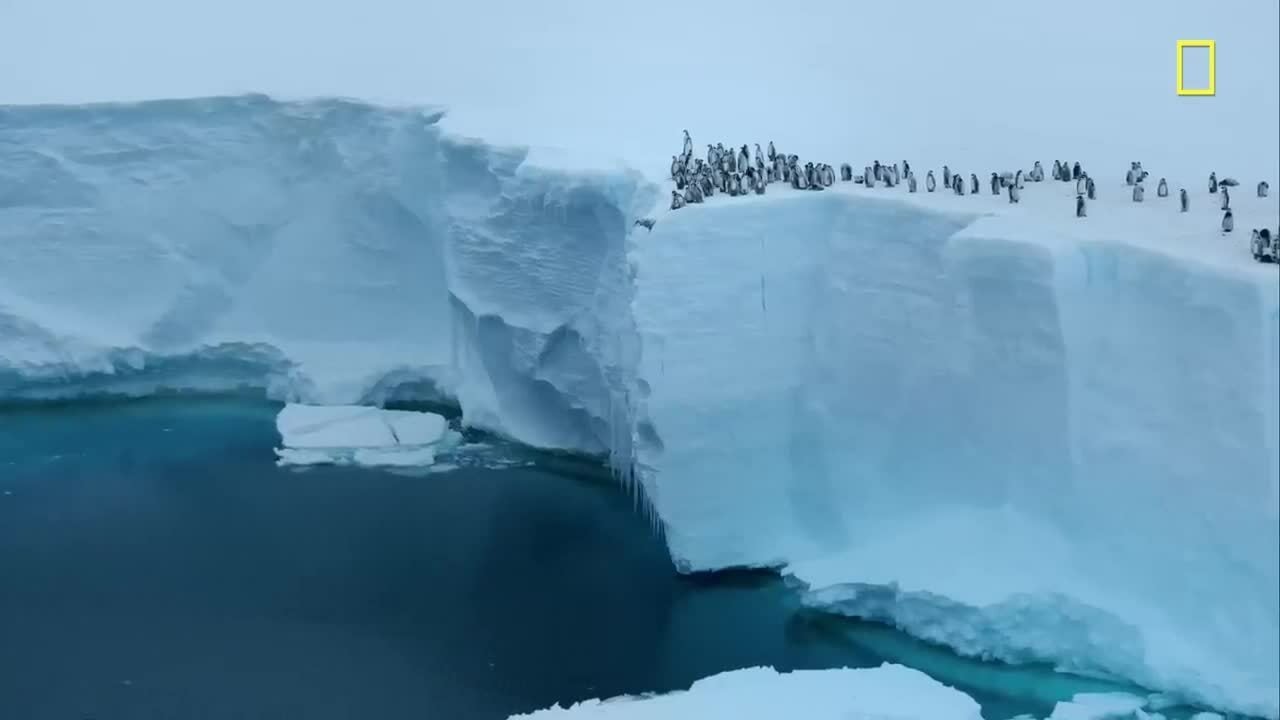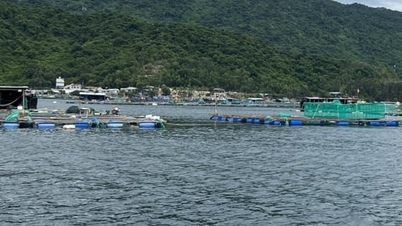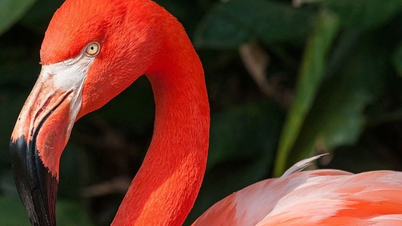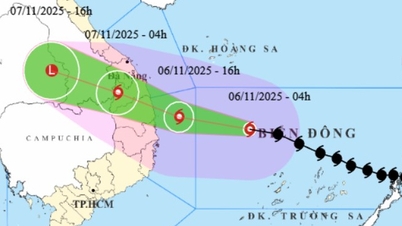The first footage recorded by scientists shows more than 200 baby penguins jumping from a 15 meter high ice cliff into the sea to find food because they are so hungry.
A flock of emperor penguin chicks jumps down a steep ice cliff. Video : National Geographic
Unique drone footage shot in January 2024 captures a rare event that could become more common as sea ice shrinks and penguins are forced to adapt, according to National Geographic . Like a group of teenagers huddled on a clifftop, waiting for the first brave person to jump into a lake, hundreds of month-old emperor penguins congregate at the top of the Antarctic shelf, 50 feet above sea level. Driven by hunger, the chicks peer out over the edge of the ice cliff as if weighing whether they can survive such a great fall. Then, one of them takes the lead and jumps.
Several of the chicks craned their necks to watch as their fellows plummeted and landed in the icy water below. Seconds later, the brave bird emerged and swam away to fill its bellies with fresh fish, krill, and squid. Gradually, the other chicks followed, swooping down and flapping their wings to keep afloat.
Filmmakers working on the documentary The Secrets of the Penguins captured the rare drone footage over Atka Bay on the edge of the Weddell Sea in West Antarctica. It is the first footage of an emperor penguin chick jumping from such a high cliff, according to scientists.
“I couldn’t believe they were filming it,” said Michelle LaRue, a conservation biologist at the University of Canterbury in Christchurch, New Zealand. LaRue had traveled to Atka Bay to advise film crews on emperor penguin behavior, from egg-laying to chick-rearing.
Normally, emperor penguins nest on free-floating sea ice that melts away each year, not on ice shelves that are firmly attached to land. But recently, some colonies have been nesting on ice shelves. Scientists speculate that the change may be related to sea ice melting earlier due to climate change. The International Union for Conservation of Nature lists the emperor penguin, which numbers an estimated 500,000, as near-threatened, largely because climate change is affecting their habitat.
In early January 2024, in the last few weeks before the sea ice breaks up at the end of the Southern Hemisphere summer, the filmmakers came across a group of penguin chicks that LaRue guessed were likely rearing on the ice shelf north of the cliff. Curious about where they were going, they flew a drone overhead. Gradually, more chicks joined the group until there were about 200 at the top of the steep cliff.
Gerald Kooyman, a physiologist who has spent more than five decades studying emperor penguins in Antarctica, said he had only seen a similar event once before, more than 30 years ago. Peter Fretwell, a scientist with the British Antarctic Survey, who has been studying satellite images of the penguin colony at Atka Bay for several years, occasionally saw penguin footprints heading north toward the cliffs. He speculated that in January, the chicks were following one or two adults who had gone astray.
Subadult emperor penguins always jump from sea ice into the water, dropping less than a meter. But the little penguins at Atka Bay found themselves in a precarious position to enter the water, and they were starving. Their parents had swum out to sea, and it was time for them to find food for themselves. The chicks were waiting for their smooth, waterproof feathers to grow in to replace their down.
Scientists do not believe the penguins’ cliff-jumping behavior is directly related to climate change warming Antarctica. However, Fretwell said that decreasing sea ice on the continent is forcing more emperor penguins to breed on the ice shelf, so such behavior will become more common in the future. Scientists are concerned about the sudden decline in Antarctic sea ice since 2016 and the consequences for the penguins’ long-term survival.
LaRue remains hopeful about the penguins' ability to adapt. "They're incredibly resilient. They've been around for millions of years, they've seen a lot of changes in their environment. The question is how quickly they can adapt to the changes that are happening," LaRue said.
An Khang (According to National Geographic )
Source link







![[Photo] Opening of the 14th Conference of the 13th Party Central Committee](https://vphoto.vietnam.vn/thumb/1200x675/vietnam/resource/IMAGE/2025/11/05/1762310995216_a5-bnd-5742-5255-jpg.webp)
































![[Photo] Panorama of the Patriotic Emulation Congress of Nhan Dan Newspaper for the period 2025-2030](https://vphoto.vietnam.vn/thumb/1200x675/vietnam/resource/IMAGE/2025/11/04/1762252775462_ndo_br_dhthiduayeuncbaond-6125-jpg.webp)







































































Comment (0)